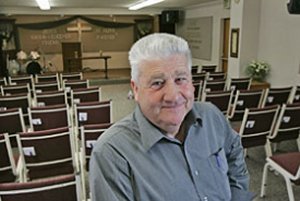By Prince Charles – For more than twenty years, I have tried to build bridges between Islam and Christianity and to dispel ignorance and misunderstanding between them. Islam is the second largest faith community in the world and the second largest in Britain, and so bridges between Islam and Christianity are something that must concern every responsible person.
Opinion on Court Decision: Prayer at public meetings may be lawful but not expedient
By Bryan Fulwider – On May 5 the U.S. Supreme Court dealt a blow to Christianity with its 5-4 prayer ruling in the case of Town of Greece v. Galloway.
However, that’s definitely not how any headlines I read described the decision. Nor is it how the five-justice majority would have viewed it. And it’s certainly not what most Christians would say. But that’s what happened, I believe. Now for some background.
Rediscovering Agape: Why the Reformation is Not Over
Agape love is the central premise of Protestant Christian theology. According to The Oxford Handbook of Theological Ethics, “Luther’s rediscovery of the primacy of agape was the linchpin of the Reformation and the rediscovery of genuine Christian ethics.” (See G. Meilaender and W. Werpehowski, The Oxford Handbook of Theological Ethics, 2007, p. 456.)
Many confuse the concept of agape love with the concept of caritas, or charity, but these are two separate ideas. The concept of agape love is the love of God reaching down to save humanity through grace, while caritas is about humans reaching upward toward God through works.
U.S. Supreme Court Rules That Public Prayers Before Town Council Meetings Are Permissible
On May 5, 2014, the U.S. Supreme Court released its opinion in Galloway v. Greece (click for text) that since opening prayers are permissible as a tradition of Congress and state legislatures, Marsh v. Chambers(1983), they are also permissible at town council meetings so long as they don’t condemn or try to convert people who are not members of a particular religion.
7th Cir. to Decide Whether Ministerial Housing Exemption is Constitutional
By Michael Peabody – Last November, a federal judge stuck a stick in a beehive when she found that a long-standing tax-exemption for clergy housing was unconstitutional. The case, Freedom from Religion Foundation (FFRF) vs. Lew, is currently on appeal to the Seventh Circuit Court of Appeals and religious organizations are out in force defending the exemption.
Why Did the U.S. Supreme Court Decide Not to Hear the New Mexico Photographer’s Appeal?
By Michael Peabody – Although the U.S. Supreme Court did not provide a reason for declining Huguenin’s writ, it is probably not because the Court intends to lock in the New Mexico decision or that the Supreme Court is not interested in addressing this issue at a later date. It is most likely because the Court is looking for a better case, perhaps a combination of several cases which represent different results in different jurisdictions.
After 6-Year Fight, California County Drops Bid to Turn Church Into Bar
Guatay, CA – A church is in high spirits after six years of litigation with the County of San Diego for abruptly shutting them down. The County agreed to confer a Minor Deviation Permit to the church, allowing them to continue operations despite having been zoned many years ago—and unknown to the church—as a country-western bar.
U.S. Supreme Court Declines to Hear New Mexico Photographer Case
Today, without comment, the U.S. Supreme Court declined to hear the appeal of a New Mexico photography studio and its owners. The highly-publicized case of Elane Photography v. Willock involved a photographer who refused on religious grounds to photograph a lesbian couple’s commitment ceremony.
Opinion: Don’t Use Religious Liberty to Discriminate
By James Coffin – In the United States, individuals and groups have a long history of discrimination against fellow humans.
But over many decades, legislators and judges have curtailed our freedom to negatively impact others’ lives based on our own prejudices. Such government actions have been a great blessing to the targets of discrimination.
Although anti-discrimination laws limit our freedom to say by our actions that we view certain categories of our fellow humans as inferior, unworthy or evil, they also help ensure justice for all.
Hobby Lobby Case: How Will the Court Decide?
By Michael Peabody – On March 25, the U.S. Supreme Court heard oral arguments in Sebelius v. Hobby Lobby Stores (transcript and audio). According to a number of court pundits, the court is expected to split with four justices on each side and the deciding vote is predicted to fall to Anthony Kennedy. Perfectly projecting the Court’s decision is not much easier than predicting a perfect NCAA March Madness bracket, but here are some potential outcomes for the case.









